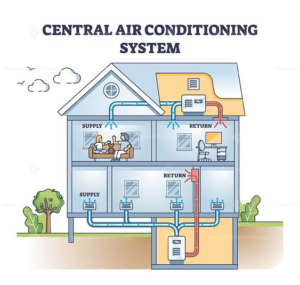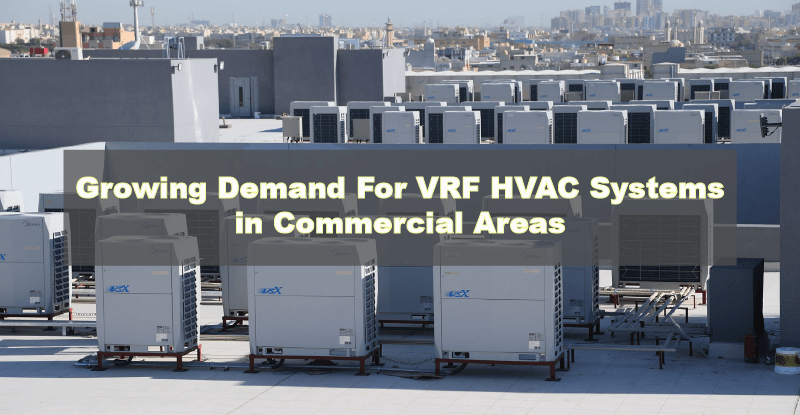Yes, VRF systems have the potential to significantly save electricity compared to traditional split AC systems. Here’s a detailed breakdown of how VRF systems achieve energy efficiency:
Key Factors Contributing to VRF Efficiency:
-
Variable Refrigerant Flow (VRF): Unlike traditional AC systems that operate on a constant on/off basis, VRF systems utilize inverter technology to adjust the compressor speed. This allows the system to precisely match the cooling or heating demand, avoiding unnecessary energy consumption. Imagine the difference between constantly turning a faucet on and off for a trickle of water versus adjusting the flow to meet your needs.
-
Zoned Control: VRF systems can provide independent temperature control in different zones of a building. This means you only cool or heat the areas that need it, eliminating energy waste in unoccupied spaces.
-
Heat Recovery (Optional): VRF systems with heat recovery capabilities can capture heat from areas being cooled and transfer it to areas requiring heating. This eliminates the need to use separate heating and cooling systems simultaneously, reducing overall energy consumption.
-
Reduced Duct Losses: VRF systems minimize ductwork compared to traditional central AC systems. Ductwork losses can be significant, as conditioned air can lose heat or coolness as it travels through ducts. VRF systems often use refrigerant piping instead of ducts, reducing these losses.

Energy Savings Potential:
Studies suggest that VRF systems can achieve energy savings of 15% to 40% compared to traditional split AC systems. The exact savings depend on various factors like climate, system configuration, and usage patterns.
Here are some specific examples of how VRF systems can save electricity:
-
Office Buildings: In an office building with different departments, a VRF system allows for setting individual comfort preferences. Conference rooms that are only used occasionally can maintain a lower temperature without affecting frequently used workspaces.
-
Hotels: VRF systems can provide independent temperature control in guest rooms, lobbies, and common areas. This optimizes energy use as unoccupied rooms don’t need continuous cooling.
Other factors to consider:
-
Proper System Design and Installation: A well-designed and installed VRF system is crucial to maximize its energy-saving potential.
-
Maintenance: Regular maintenance ensures the VRF system operates efficiently and avoids potential energy losses.
Overall, VRF systems offer a compelling solution for energy-efficient air conditioning, particularly in buildings with variable cooling or heating needs across different zones. While they may have a higher upfront cost, the long-term energy savings can be significant. If you prioritize an energy-efficient HVAC system, a VRF system is definitely worth considering, but keep in mind consulting with an HVAC professional to determine if it’s the most suitable option for your specific needs.
Looking to install a commercial HVAC System or Duct work in your Business Area?
Contact Vipul Ac to learn about our HVAC Service
Call +91 9825636606 Today.

